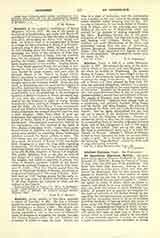

Adalbert, Saint, apostle of the Slavs, probably a native of Lorraine, d. 981. He was a German monk who was consecrated bishop and sent to establish Christianity in Russia in 961. His mission was the result of a request of the princess Olga who, having appealed in vain to the court of Constantinople for someone to evangelize her people, besought the German Emperor Otho, who sent Adalbert and a number of priests to begin the work. Russia was then in a state of barbarism, and the missionaries were attacked on the way, some of the priests being killed, Adalbert barely escaping with his life. Returning to Germany, he was made Abbot of Weissenburg in Alsace, and in the following year became Bishop of the new see of Magdeburg, which was erected for the purpose of dealing especially with the Slavs. Magdeburg became one of the great bishoprics of the country, the chief one in the North, and ranking with Cologne, Mainz, and Trier. Adalbert was made Metropolitan of the Slavs, and established among them the sees of Naumburg, Meissen, Merseburg, Brandenburg, Havelberg, and Posen. The Pope appointed two legates to assist him in his apostolate. He governed his church until his death in 981.
T. J. CAMPBELL

